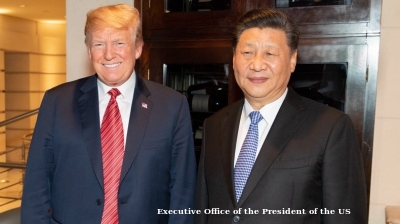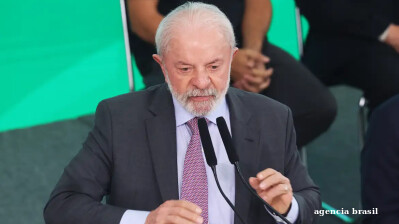Argentine lawmakers on September 11 upheld President Javier Milei's veto of a proposed pension increase, triggering violent protests outside Congress as demonstrators clashed with police.
The Chamber of Deputies voted 153-87 to override Milei's veto, falling short of the two-thirds majority required. The libertarian president had blocked the 8.1% pension hike last week, arguing it would jeopardise his efforts to achieve fiscal balance.
Thousands of protesters, including pensioners, gathered outside Congress to voice their opposition to Milei's decision. As news of the vote spread, demonstrators broke through police barriers, leading to clashes with security forces who responded with pepper spray and rubber bullets.
Local media reported that 12 people were injured and three arrested, though official figures were not immediately available.
The minimum pension in Argentina currently stands at $230 per month, with retirees struggling to cope with annual inflation nearing 240%.
Milei, a self-described “anarcho-capitalist” who took office in December, has implemented a stringent austerity programme aimed at curbing chronic inflation and years of government overspending. While August inflation dropped to 4.2%, critics argue that the apparent economic gains have come at the expense of the poor and working classes.
The president's veto sparked particular outrage as it followed his decree to increase the state intelligence agency's budget by $102mn - a 700% rise - without requiring expenditure justification.
Milei celebrated the vote outcome on social media, praising the 87 lawmakers who supported his veto as "heroes" who had "slammed the brakes on the fiscal degenerates".
The pension debate has exposed divisions within Argentina's political landscape. While Milei's right-wing La Libertad Avanza party is a minority in parliament, he secured support from some centrist and centre-right lawmakers to uphold the veto.
"We cannot spend what we do not have, there is no money," said Juliana Santillan, a member of Milei's party, echoing one of the president's key slogans.
However, centrist deputy Rodrigo de Loredo, who voted to override the veto, argued that retirees deserved the modest raise, equivalent to "a dozen empanadas".
The country’s economy remains in recession, with unemployment at 7.7% and more than half the population living in poverty, according to private estimates acknowledged by Milei himself.
Argentina is in the process of renegotiating a $44bn programme with the International Monetary Fund. The lender praised Milei’s decision to curb social spending, deeming it in line with the suggested debt restructuring measures, as reported by Bloomberg.
“We agree with the government’s objectives of strengthening the overall sustainability of the pension system, while also protecting the real value of pensions, especially for lower-income retirees,” said IMF Chief Spokesperson Julie Kozack at a press briefing on September 12.
As the cabinet pushes forward with its controversial “chainsaw” economic reforms, tensions are likely to persist between Milei's administration and those who feel left behind by his policies.
News

Trump and Xi to meet in Busan, South Korea
The meeting comes after weeks of uncertainty over whether the encounter would take place. A trade dispute flared earlier this month when Beijing expanded export curbs on rare‐earth minerals, prompting the US to threaten additional tariffs.

Russia will remain defiant against US sanctions pressure, Putin claims
The sanctions come at a time when Russia’s two largest energy buyers, China and India, have shown signs of reducing their oil imports from Russia.

Russia rules out seizing EU assets but warns of retaliation if confiscations proceed
Russia will not seize European Union assets currently operating within its borders, Russian Deputy Finance Minister Alexei Moiseev has said.




_1761147529.jpeg)
